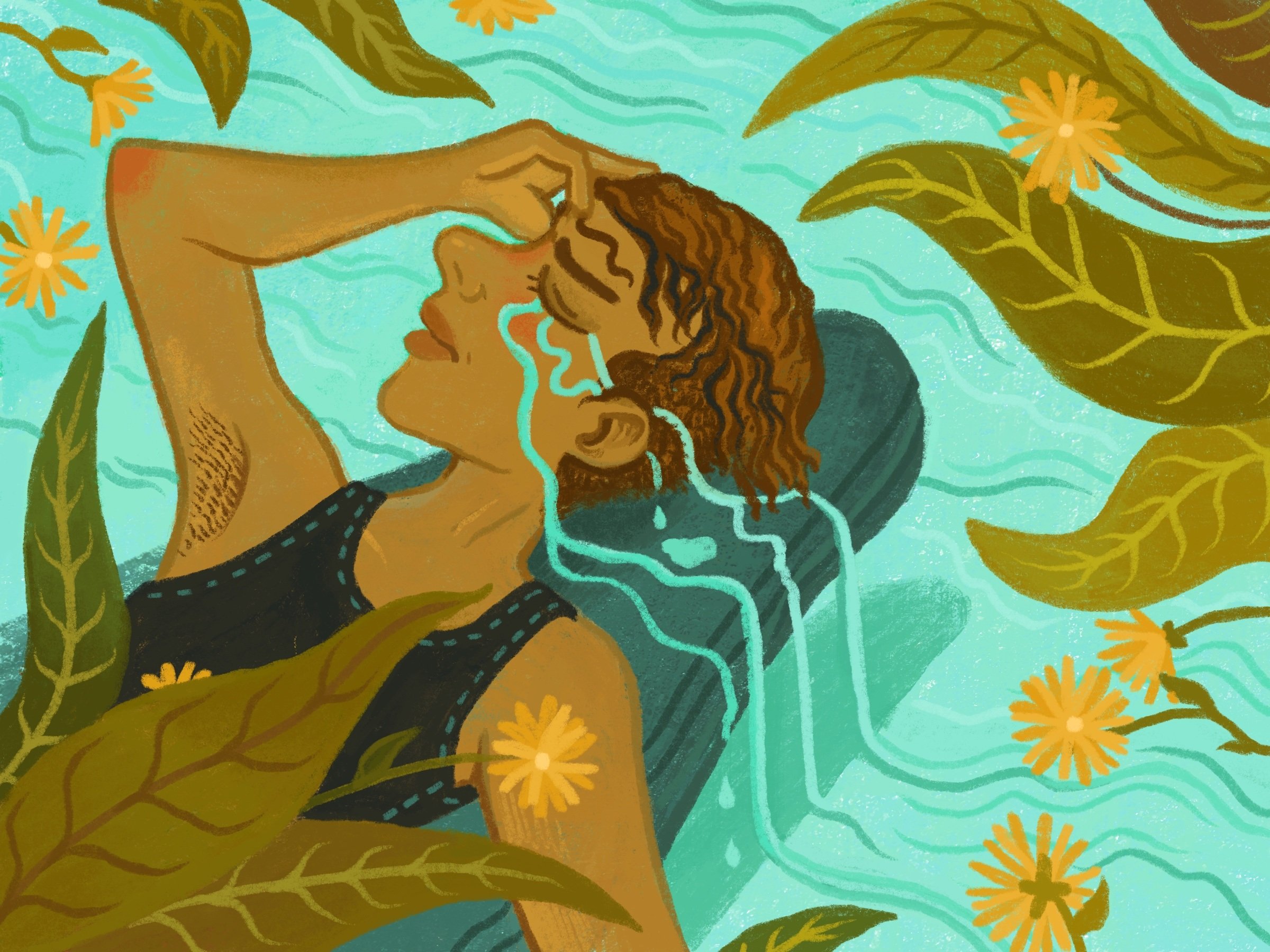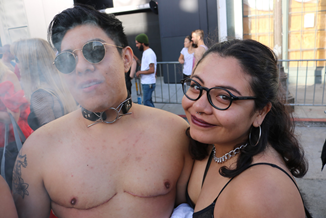Photo by Deveney White
There’s a thousand self-help books, talk shows, and Ted Talks about self-confidence. It seems to be seen as a magic bullet, something that would solve everything if we could get enough. But what I never see is an examination of why people continue to struggle with low self-esteem in the first place, particularly within oppressed communities.
Low self-confidence affects most aspects of my life. When I walk into a space, I often find myself looking for a validating presence. Someone who I can lock eyes with in the middle of a meeting if something strange happens or if something horrible gets said and no one else seems to react. This may sound intense or like a great deal of effort, but if you’ve ever been in a place where you feel like you’re the only one reacting, or where people discredit when you say something isn’t right, you may know what I’m talking about.
When I feel this way and I don’t have understanding individuals to discuss it with, I tend to withdraw from the space. I become increasingly protective of myself and my work. I have a difficult time taking feedback because I’m unsure of where it is coming from, and sometimes, when it is laced with something that seems based on a marginalized identity of mine, I swallow it down. I’ve slowly become a master of looking fine until I get home.
We Shouldn't Be Blaming Ourselves
For a long time, I thought low self-esteem caused me to need so much validation from other people and lack faith in my own judgement. I remember in 3rd grade getting pieces of laffy taffy for doing “good deeds” and trying to write positive things about myself on tiny slips of paper to keep through the day. But the problem was, all those little pieces of paper were never able to stand against the immense onslaught of negative messages I received about myself growing up as a South Asian, queer, Hindu woman in a predominantly white, Christian town.
As I got older, people began noticing this lack of confidence. Someone finally called it “imposter syndrome.” And the first time I heard the term, it sounded spot on. Imposter Syndrome is a concept that refers to high-achieving individuals who are marked by an inability to internalize their accomplishments and a persistent fear of being exposed as a "fraud."
I was stunned. Here was a word for something I’ve always felt. But the longer I dug into it, the more I felt the definition was missing some really crucial pieces.
See, imposter syndrome makes it sound like the problem is entirely internal and fixable by increasing one’s self confidence or getting lots of validation. But my lack of confidence is also really influenced by my experience as a person with multiple marginalized identities.
Those words and stereotypes that were projected onto me as a child and adolescent still hold power and influence my feelings about myself to this day. They are like a field of voices that I have to battle to make my own be heard. Ones that called my name strange or refused to say it at all, or those who asked me the seminal question “feather or dot?” to determine if I was Native or South Asian.
There’s a thousand stories I could tell, but all of them add up to the fact that my being Othered in the town I grew up in deeply affected my confidence and my belief in myself. That truth is not fully articulated when my lack of self-confidence is brushed off as “imposter syndrome.”
Even the act of writing this article requires me to fight the very narrative I am discussing. Those feelings didn’t come from some magic place that could be addressed by a back-to-school special and a hug. They came from racism, queerphobia and white supremacy. Holding that as truth helps me create change, rather than pointing the finger back towards myself and saying that somehow I have failed to be confident in my own possibility.
Each time I hold this truth close, I create a space in which my truth can actually live. This changes my narrative from one where I blame myself for every pain I have experienced. I become my own rescuer, instead of having someone to tell me to lean in and feel that they are my rescuer.
Believe me, I’ve heard it. Yes, I’m aware I’m awesome. No, I really don’t need a pep talk. Yes, I’m aware I have potential. No, I don’t need your validation to know it.
(Also a shout out to Jessica Williams for showing me how to cope with people doing that, because oh my god it was beautiful and helpful.)
One of the most helpful things I read was an article by Alexis Hancock on the tech industry, imposter syndrome, and racism. It helped me reassess my feelings of being responsible to repair every part of the environments that are toxic to me, which was how I used to cope with imposter syndrome.
“I recognize my environment as the imposter, and it’s no longer up to me to fix its sickness.” – Alexis Hancock, How the Rhetoric of Imposter Syndrome is Used to Gaslight Women in Tech
Her words are amazingly freeing and healing (even though I’m not a Black woman in tech like Alexis). Racism’s ability to cause me harm in my environment is extensive and cannot be solved so simply by having more confidence in myself. My confidence in myself does not matter if I am seen as incompetent or lesser than due to stereotypes.
Gaining Self-Confidence through Naming Oppression
If I cannot be viewed as a person in the same way as my white colleagues, all my self-confidence will not change my perceived outcomes.
Because if I do not see myself as an imposter, but I am seen by others as having less potential, then leaning in is not sufficient. If I’m pushed into stereotypes of who I can be because of my race, sex, gender or other identities, then working harder to prove myself won’t cut it.
I am not an island. I am part of communities and cities and worlds. Those places and other people affect me and are part of necessary interactions I must have in the world to live in it.
I can only control myself and how I respond to my internal feelings. Even those feelings are tricky some days, and that’s ok.
I cannot control the world around me. But I can acknowledge that the world has harmed me. That the world, while a beautiful and magical place at times, has also caused much of this doubt inside me.
Nurturing my self-esteem is about more than celebrating myself. To feel more confident in myself and my abilities, I can let go of the immense feeling of responsibility I feel for my pain and instead put the blame squarely where it belongs. In that, I find my healing and my power, to know that the only imposter here is my fear is that I am not enough.
I was always enough.
I am always enough.
I will continue to be enough.
We need community support to continue publishing!
Articles and artwork like these are only possible through your contributions. Please donate today to sustain the wellbeing of artists, writers, healers, and LGBTQ2IA+ people of color.
You can also support our team by picking up
a Rest for Resistance print zine.
Image description:
A dark-skinned person's face is central to the photo. As they look down brows furrowed together, they are frowning. A long, purple tassle earring hangs down over a green t-shirt. Their arms are crossed, and their hair is worn up away from the face.
About Shivani Seth:
Shivani is a queer 2nd generation Punjabi American living in the Midwest. Her work includes queer and diverse fiction, teaching allyship, combating mental health stigma in POC spaces and living in recovery. Her writing, updates and other ramblings can be seen on Twitter, Facebook and Medium.
About Deveney White:
Atlanta-based agender/queer photographer who specializes in natural, ephemeral, timeless moments. Lover of the cornflower blue crayon, 90s culture, Lisa Frank, and social justice/human rights. They daydream frequently and play the ukulele. Follow @deveneywhite on Instagram.











